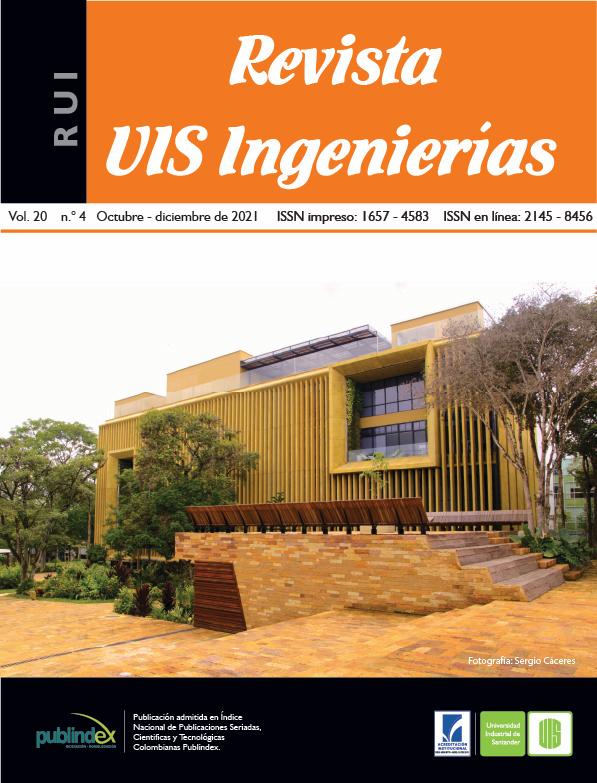Speed influence on the recycled high-density polyethylene/HDPE handles, tested with a specific adapted industrial method
Published 2021-07-22
Keywords
- tensile strength,
- elongations,
- recycling,
- handles,
- polyethylene
- testing speed ...More
How to Cite
Abstract
This article studies the influence of the tensile speed when testing plastic products used to transport containers that may contain various liquids (drinking water, windshield fluid, cleaning agents, etc.). This case study was conducted on certain parts, generally called "handles", which are basically plastic items obtained largely from recycled technological waste resulting from the injection process of various packaging related to the food industry polyethylene caps and lids more precisely. During the handling and transport process, these parts are subjected to various static stresses, therefore, a minimum mechanical resistance is required. Fatigue stress has not been performed due to a limited number of duty cycles. To determine these quality characteristics, multiple measurements of tensile strength and elongations were performed at different traction speeds, measurements that have been validated on the market for several years. We have observed that testing speed over 500 mm/min is not necessary because the tensile strength values do not vary significantly. These results are very important in determining the constructive form of these products and the methods for validating quality indicators. Also, we have proposed to identify a method able to assess the mechanical performance of the product used in nonstandard conditions. The study can be used for a much wider range of similar applications in the plastics industry.
Downloads
References
[2] Directive 2019/904 of the European Parliament and of the Council, “Reduction of the impact of certain plastic products on the environment”, 2019. [Online]. Available: https://eur-lex.europa.eu/eli/dir/2019/904/oj
[3] California Legislative information, “AB-319 Recycling: single-use plastic beverage container caps,” . 2017. [Online]. Available: https://leginfo.legislature.ca.gov/faces/billNavClient.xhtml?bill_id=201720180AB319
[4] Marketsandmarkets, “Plastic Caps and Closures Market - Global Forecast to 2023,” [Online]. Available: https://www.marketsandmarkets.com/Market-Reports/plastic-caps-closure-market-132939537.html
[5] Euromap, “Plastics Resin Production and Consumption in 63 Countries Worldwide,” 2016. [Online]. Available: https://www.pagder.org/images/files/euromappreview.pdf
[6] Ministerio del Medio Ambiente, “Plan Nacional para la Gestión Sostenible de los Plásticos de un solo uso,” Bogotá, Septiembre 2019.
[7] Green Alliance Annual Report, [En línea]. Available: https://green-alliance.org.uk/resources/AnnualReports/Annual_Review_2019-20
[8] M. G. S. Bicket, M. Hestin, C. Hudson, P. Razzini, A. Tan, P. ten Brink, E. van Dijl, R. Vanner, E. Watkins, “Scoping study to identify potential circular economy actions, priority sectors, material flows and value chains,” Office of the European Union, Luxembourg, 2014, doi: 10.2779/29525.
[9] ASTM, “ASTM D7611. Standard Practice for Coding Plastic Manufactured Articles for Resin Identification,” West Conshohocken, PA, 2020.
[10] And & Or, “Handle aplicator systems,” [Online]. Available: https://andyor.com/en/handle-applicators/#neck
[11] Vieira Araujo, “handles products,” 2020. [Online]. Available: https://www.vieiraaraujo.pt/en/highlights
[12] J. Hopewell, R. Dvorak, E. Kosior, “Plastics recycling: challenges and opportunities,” Phil. Trans. R. Soc. B, vol. 364, p. 2115–2126, 2009, doi: 10.1098%2Frstb.2008.0311.
[13] M. K. Akkapeddi, B. V. Buskirk, C. D. Mason, S. S. Chung, X. Swamikannu, “Performance blends based on recycled polymers,” Polymer Engineering and Science, vol. 35, pp. 72-78, 1995, doi: 10.1002/pen.760350110.
[14] M. R. Shishesaz, A. A. Donatelli, “Tensile properties of PE Blends,” Polymer Engineering and Science, vol. 21, no. 13, pp. 869-872, 1981.
[15] R. Brown, Handbook of polymer testing. Boca raton: CRC Press, 2020.
[16] D.F. Teusdea, V.D. Stan, M. Voda and E.C. Lovasz, “Study on the influence of recycled material on the tensile strength of HDPE products”, IOP Conf. Series: Materials Science and Engineering, 916, 012119, 2020, doi: 10.1088/1757-899X/916/1/012119.
[17] ASTM, “D638-14. Standard Test Method for Tensile Properties of Plastics,” 2014.
[18] ISO, “ISO 527-2. Plastics-Determination of Tensile Properties-Part 2: Test Conditions for Molding and Extrusion Plastics,” Geneva, Switzerland, 2012.
[19] M. Amjadi, A. Fatemi, “Tensile behavior of high-density polyethylene including the effects of processing technique, thickness, temperature, and strain rate,” Polymers (Basel), vol. 12, no. 9, 2020, doi: 10.3390/POLYM12091857.
[20] Minitab 18 “User Guide”, [Online]. Available: https://support.minitab.com/en-us/minitab/18/


